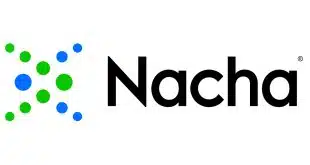Canadian processor Lightspeed POS Inc. expects its acquisition of Upserve Inc., a Providence, R.I.-based provider of cloud-based restaurant-management software, to make it more competitive in the restaurant point-of-sale business in the United States.
The acquisition of Upserve for a combination of cash and stock totaling $430 million comes hot on the heels of Lightspeed’s acquisition last month of ShopKeep Inc. and expands Lightspeed’s modest footprint in the U.S. hospitality industry, bringing to its portfolio an additional 7,000 customer locations generating more than $6 billion in revenue. Overall, the deal raises Lightspeed’s merchant base to more than 100,000 locations globally.
Montreal-based Lightspeed is paying $123 million in cash and up to more than 5.8 million shares of its subordinate voting stock to acquire Upserve, which generated $40 million in revenue for the twelve months ended Sept. 30. Upserve, originally called Swipely, was founded in 2009.

“This acquisition gives us scale, and scale matters in this industry,” says Dax Dasilva, chief executive and founder of the 15-year-old Lightspeed. He adds that ShopKeep also has a strong presence in the hospitality industry. “With most of our hospitality merchants in Australia and Europe, this deal makes us a player in the U.S. hospitality market overnight,” Dasilva says.
Lightspeed intends to leverage Upserve’s technology and analytics to help restaurants, especially upscale establishments, to improve management of operations and its workforce, provide more contactless payment and ordering options, and gain deeper insights into customer behavior that can be used to create targeted marketing campaigns to build repeat business.
“Restaurants today have a deep need for workforce management software, analytics, and applications that connect all channels including delivery, e-commerce, and payment,” says Dasilva. “The companies we acquire serve merchants with more complex needs, and there are a lot of legacy systems in restaurants that don’t meet those needs by connecting the physical and digital channels.”
Looking ahead, Dasilva says that the changes in consumer dining habits and expectations since the Covid-19 pandemic hit are creating a greater need for commerce platforms that meld restaurant management, insights into customer behavior, and payments. He argues that, with these deals done, Lightspeed will be well-positioned for accelerated growth in the hospitality industry once the pandemic subsides.
Acquisitions are expected to continue playing a key role in Lightspeed’s growth strategy. In a conference call with stock analysts late Tuesday, Lightspeed executives acknowledged that the company will continue to target companies it sees as a good fit.
Acquisitions such as that of Upserve are also expected to enable Lightspeed to expand beyond the role of a technology partner into that of a financial-services provider through offering funding to merchants. In August, Lightspeed launched Lightspeed Capital, in conjunction with payments provider Stripe Inc., to provide merchants with funds to buy inventory, invest in marketing, or manage cash flows. Retailers can receive up to $50,000 in financing per location. “We aim to become a one-stop technology and financial-services partner,” Dasilva says.







